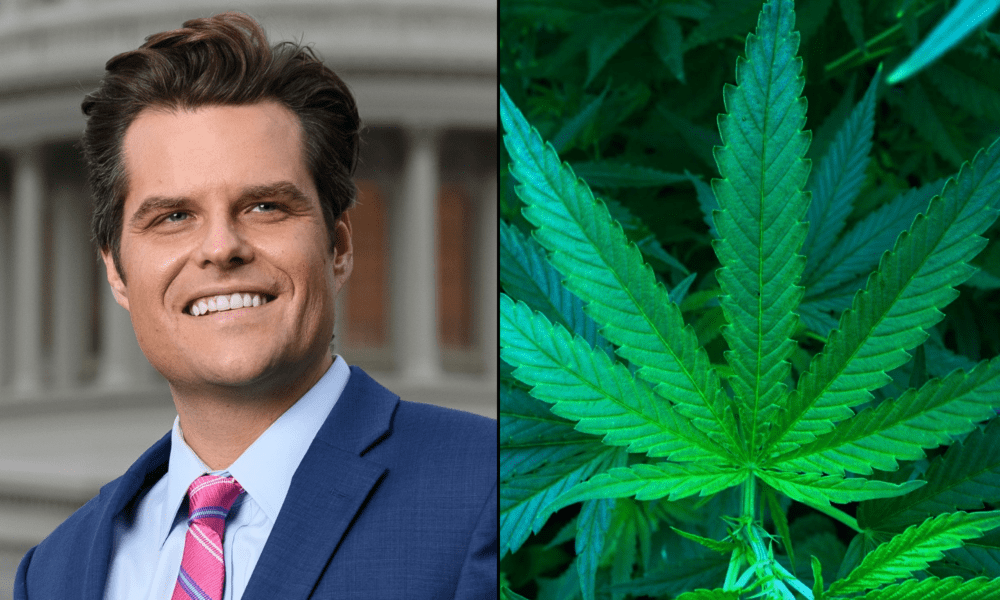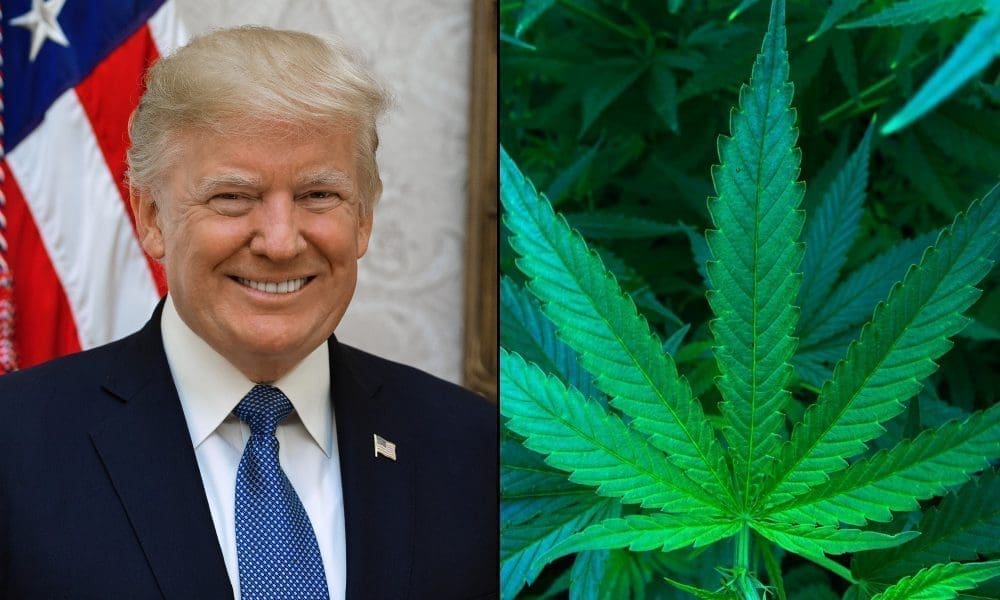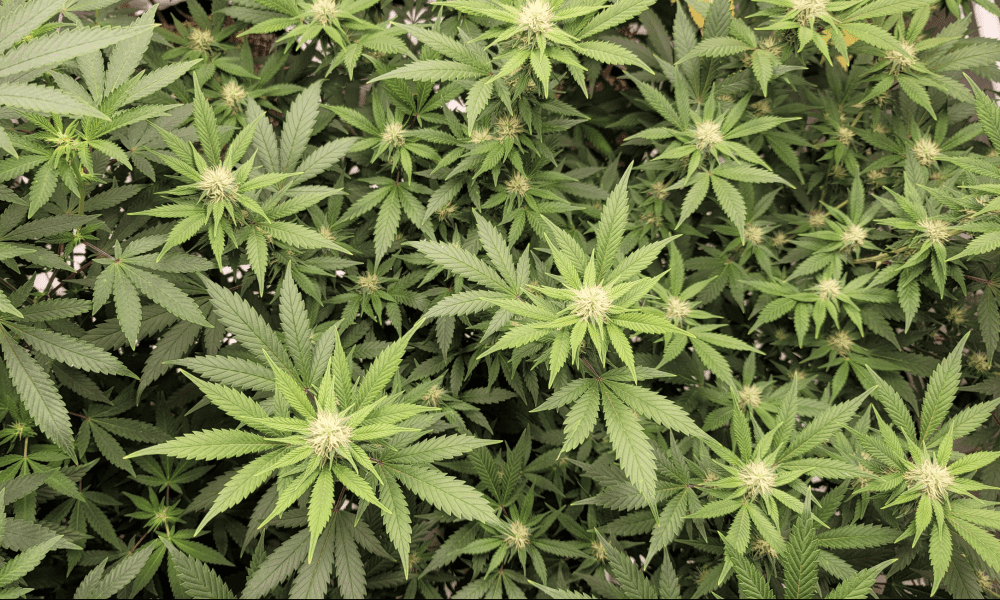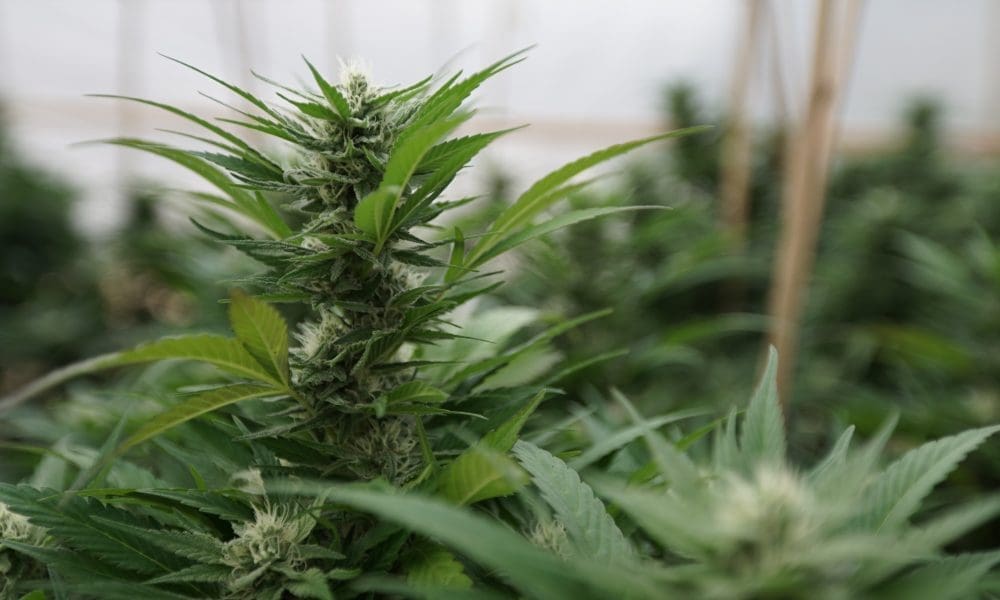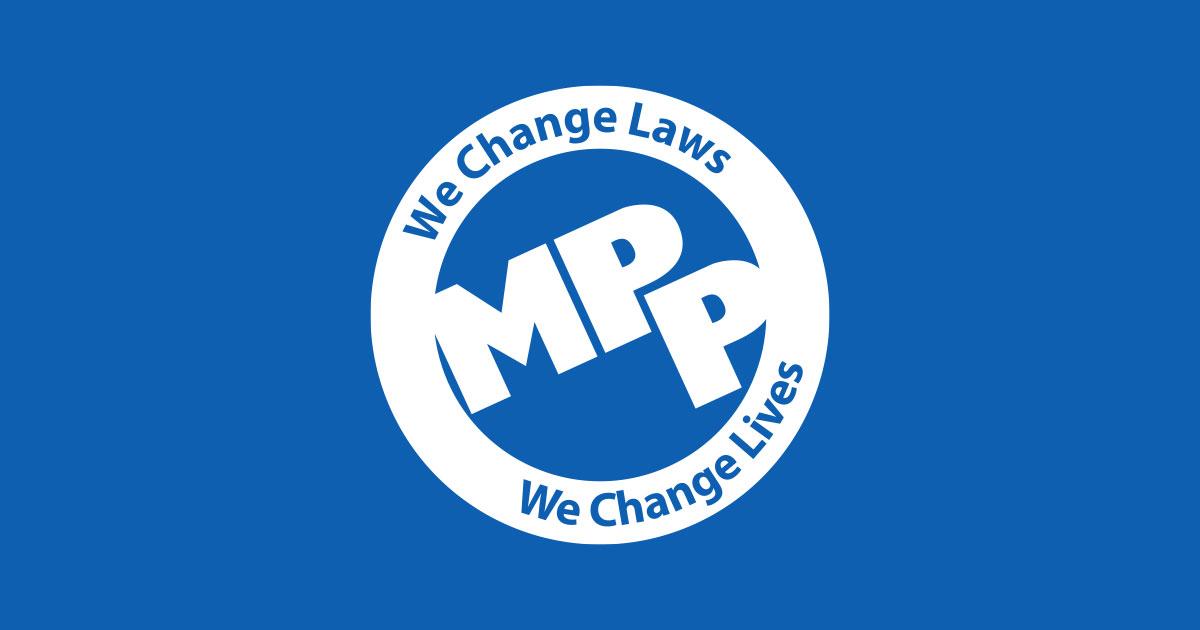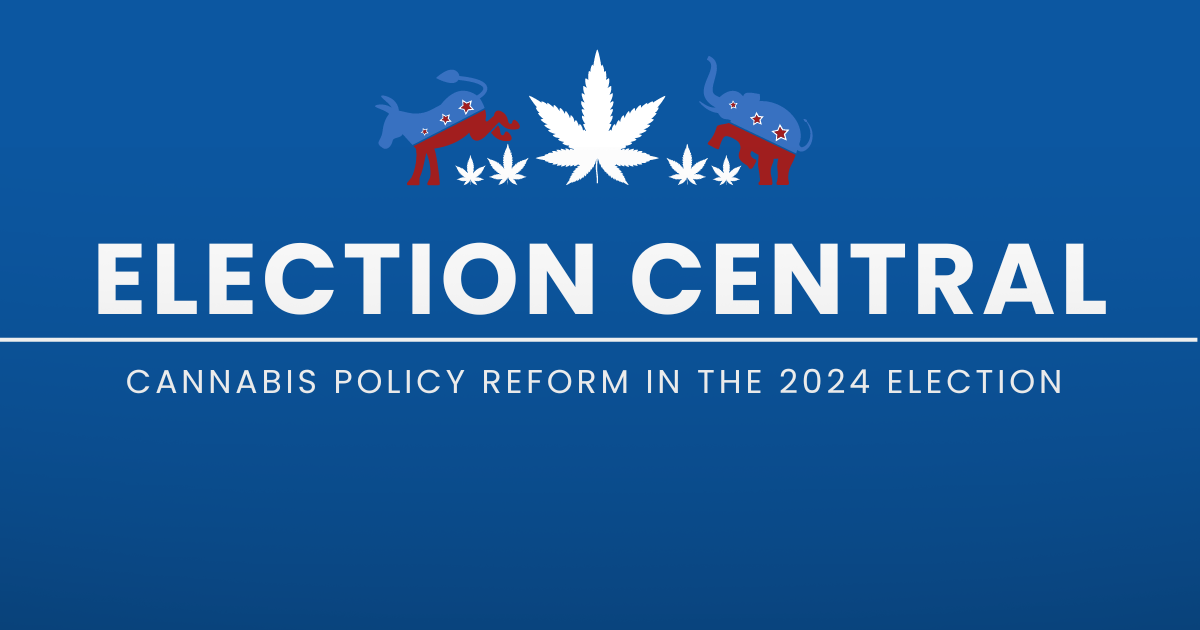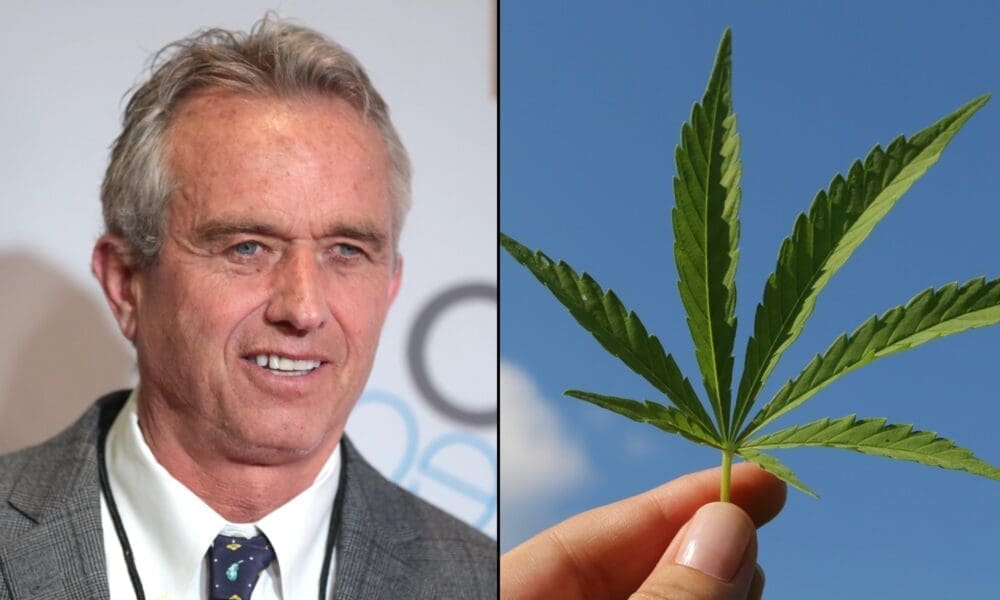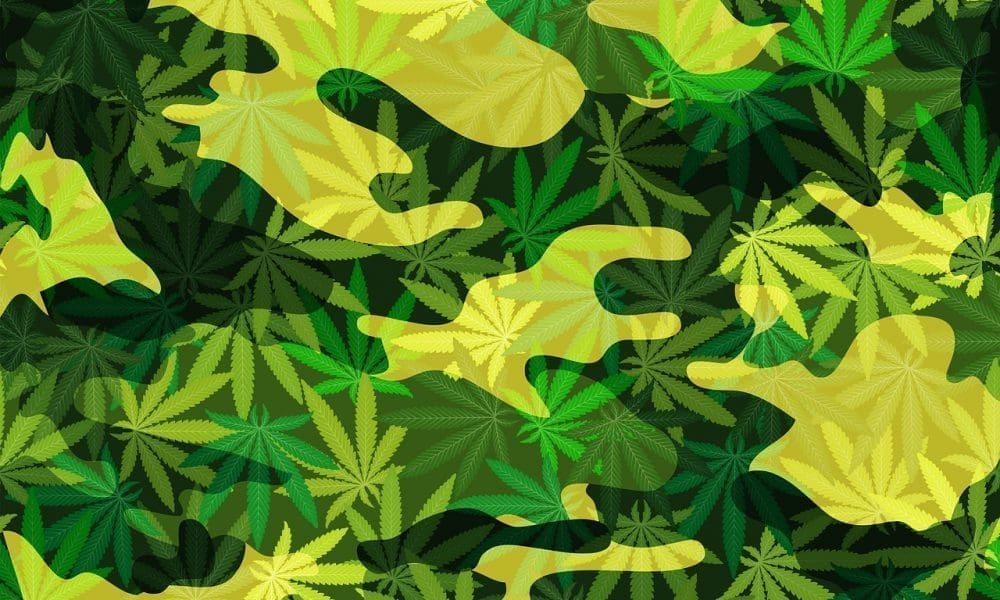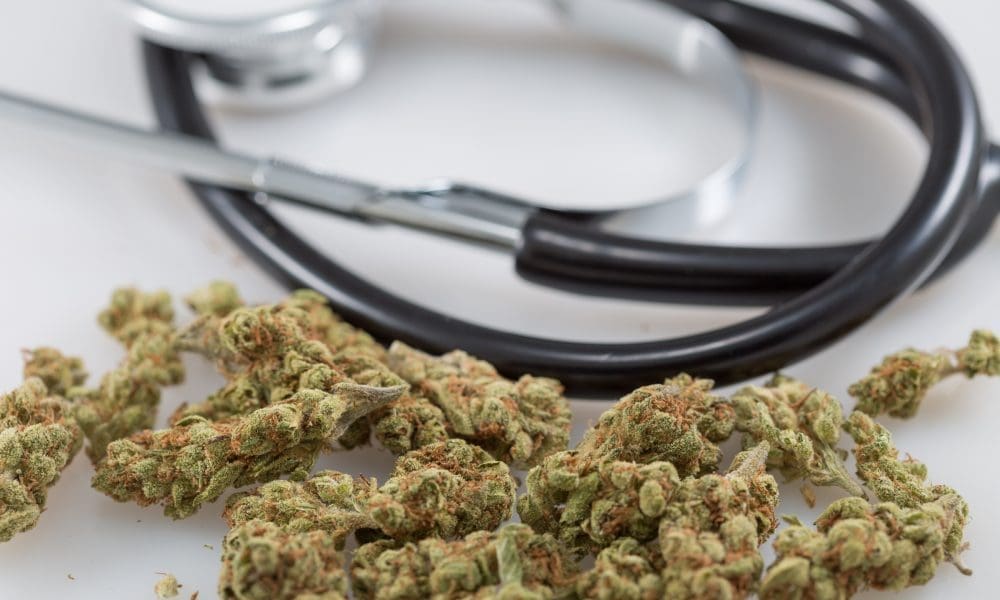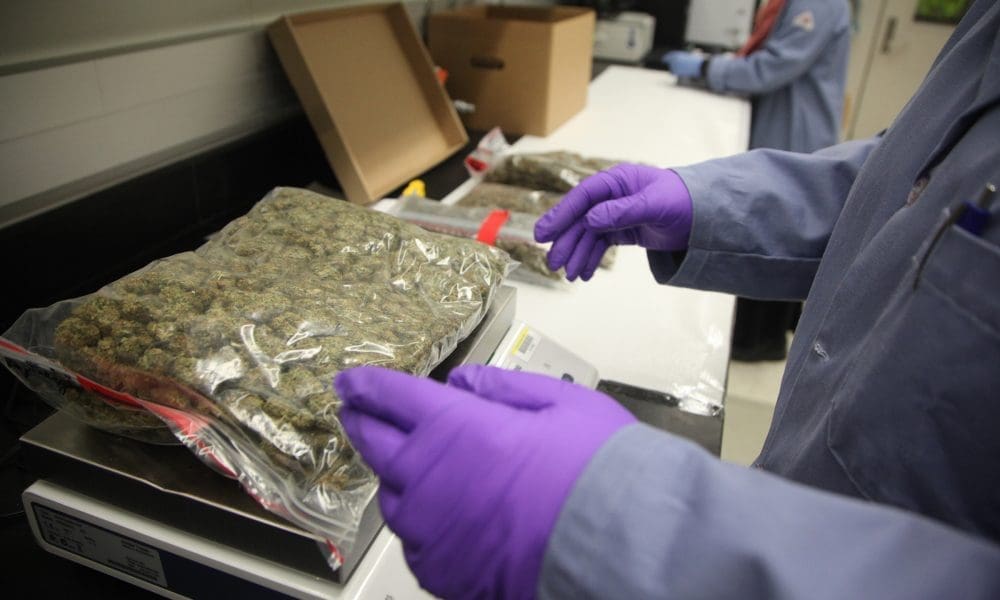
Federally Approved Research Marijuana Is ‘Very Similar’ To What’s On Commercial Markets, Study Says, But Other Scientists Aren’t So Sure
A new study led by the one of the only people permitted by the U.S. government to grow marijuana for research purposes finds that cannabis available across the country is “basically the same” in terms of its primary cannabinoid content. Genetics, the paper says—not regional growing...
Federally Approved Research Marijuana Is ‘Very Similar’ To What’s On Commercial Markets, Study Says, But Other Scientists Aren’t So Sure

Published
on
November 12, 2024
By
Ben Adlin
A new study led by the one of the only people permitted by the U.S. government to grow marijuana for research purposes finds that cannabis available across the country is “basically the same” in terms of its primary cannabinoid content. Genetics, the paper says—not regional growing differences—are chiefly responsible for the chemical makeup of the plant.
“Data showed that the cannabinoids profile of all high Δ9-THC cannabis samples, regardless of the state or region from which the samples are seized or the state from which the sample is produced under a state medical marijuana program, is basically the same,” the paper claims, reporting that samples analyzed averaged between 10 percent and 20 percent THC.
Another of the study’s claims, however, may be more controversial: The report asserts that marijuana available to consumers in state-legal markets is not only similar across the country but also “very similar to the chemical profile of the research cannabis” available through the National Institute on Drug Abuse (NIDA) Drug Supply Program—a program that several years ago came under fire for providing allegedly substandard marijuana for research purposes.
“The chemical profile of the illicit cannabis in the different regions of the USA as well as the ‘state legal cannabis’ available in dispensaries,” the paper says, “is very similar to the chemical profile of the research cannabis available in the Drug Supply Program (DSP), provided by the National Institute on Drug Abuse (NIDA) for research in this country.”
At least historically, that hasn’t always been the case. During a dustup in 2017, researchers who were studying the use of cannabis to treat PTSD in military veterans drew attention what they said was virtually unusable material sent by NIDA.
“It doesn’t resemble cannabis. It doesn’t smell like cannabis,” researcher Sue Sisley told PBS Newshour at the time, adding that some of the government samples didn’t match her requested potency while other samples were contaminated with mold.
NIDA’s Drug Supply Program is the only legal source of marijuana for clinical research in the country, but “they weren’t able to produce what we were asking for,” Sisley told PBS.
Cannabis for NIDA’s Drug Supply Program is grown by the University of Mississippi, the only facility currently permitted by the federal government to grow marijuana for clinical research. Overseeing cultivation there is Mahmoud ElSohly, an Ole Miss pharmacologist who helms the school’s Marijuana Research Project.
ElSohly, who was the lead author of the new study, published in the journal Frontiers in Public Health, told Marijuana Moment that his team found largely similar cannabinoid content in marijuana samples from across the country.

Average cannabinoids content of cannabis samples from different regions of the United States for last 10 years (2013–2022). ElSohly et al. / Frontiers in Public Health
“The main message that we’re talking about [is] it really doesn’t matter what materials you have, doesn’t matter where it’s produced, doesn’t matter where it’s seized,” he said in an interview last month. “All the materials that are there are determined by the genetic makeup of the plant material.”
“I cannot believe—or have no reason to believe—that the pharmacology of any one of those products available in one state is going to be different from the pharmacology of products that are available in another state,” he added, “simply because the chemical profile is very similar.”
Asked about the paper’s conclusion that cannabis on the U.S. market is also “very similar” to marijuana available through NIDA, ElSohly said that past complaints about cannabis quality were overblown and are being addressed in new products being produced by the program.

Average cannabinoids content of cannabis flower samples acquired from dispensaries in three different States. ElSohly et al. / Frontiers in Public Health
He said the criticism around the 2017 study marijuana came largely from “pro-cannabis-legalization” advocates, many of whom were “just not really knowledgeable with the whole activity that’s going on.”
“The NIDA program is not there to prepare materials to please the cannabis users, people that are addicted to cannabis or people who are using cannabis for recreation. We’re not doing this for any of these people,” he said. “We are producing cannabis for research. Standardized marijuana cigarettes or otherwise for research.”
For years, ElSohly said, federal research cannabis maxed out at about 6 percent THC. The relatively low potency by today’s standards better aligned with what was available decades ago on the illicit U.S. market, and it allowed subjects in research to actually consume an entire joint; experiments suggested that even experienced smokers had trouble finishing “marijuana cigarettes” of higher potency.
“Now that we’ve moved into the legal market and dispensaries and people are using higher potency,” he said, “all of the investigators became more interested in buying those higher-potency materials.”
“It really has nothing to do with our ability to produce that type of material, the high potency material—it was the need,” the researcher continued. “Was there a need for this material to be there on a large scale? No, there wasn’t. Now there is a need.”

Chemical profiles of Δ9-THC dominant cannabis chemotypes produced at the University of Mississippi for the NIDA-DSP. ElSohly et al. / Frontiers in Public Health
Today, ElSohly said, “we are in the process of making some cigarettes right now at the 10 percent, 15 percent, and 20 percent or 25 percent, just to be there in the program in case somebody wants to buy.”
In the immediate aftermath of the 2017 criticism of NIDA-supplied cannabis, the agency said it planned to produce “some additional marijuana this year and harvest some high THC material that will likely be above 13 percent THC.”
So far, however, “we haven’t really had many takers,” ElSohly told Marijuana Moment. “Somebody, maybe three, four years ago, really wanted some 20 percent material before we even produced the stuff that we have now. And we made the 20 percent. We gave that investigator what they need.”
The University of Mississippi professor said the program’s adjustment mirrors what’s happened in the commercial market, which has sought higher-potency cannabis flower through selective breeding and optimized growing techniques.
“There is a change in the market, and selecting the genetics and the cultivation practices that produce high-potency material that developed over time,” he said. “We have made an effort to stay with that trend of increasing.”
He also denied that NIDA-supplied cannabis would have tested positive for mold, even back in 2017, because there was not enough moisture in the samples. In more recent years, he noted, the program has also begun irradiating cannabis to prevent microbial issues.
As for Sisley, the researcher on the PTSD study, ElSohly said she was “very antagonistic years ago,” but is “probably one of my best advocates now.”
When Marijuana Moment reached out to some of the researchers who loudly criticized NIDA-provided cannabis back in 2017, however, their responses suggested they were still skeptical of marijuana from the NIDA program.
Sisley referred questions to Rick Doblin, the study’s sponsor and the founder and president of the Multidisciplinary Association for Psychedelic Studies (MAPS). She added that it was “interesting to see” ElSohly report on the program’s new higher-potency marijuana cigarettes but did not comment further.
Doblin, meanwhile, was direct: “The NIDA material that Sue used in our initial study was terrible quality,” he said. “We plan to import cannabis from Canada for our new study.”
“NIDA cannabis cannot be sold commercially. Therefore it cannot be used in phase 3 studies where you need to use the same drug that might be approved for marketing,” he wrote in an email. “That’s a major reason we needed to end the NIDA monopoly. Our new study is phase 2 but we want to use cannabis we can use in phase 3 if our study is promising.”
Meanwhile, Betty Aldworth, MAPS’s director of communications and post-prohibition strategy, noted that the new potencies mentioned by ElSohly of up to 25 percent THC didn’t appear to be listed on a NIDA website about cannabis available through its Drug Supply Program. That website, however, was last updated in 2016.
A NIDA spokesperson provided the following statement to Marijuana Moment:
“Marijuana products produced under NIDA’s contract with the University of Mississippi are available in a variety of cannabinoid content specifications. Through this contract, bulk plant material with THC content higher than 10% (categorized as “very high THC varieties”) can be made available for research. This includes plant material containing 10%, 15%, 20%, and 25% THC. Researchers who are interested in obtaining cannabis and cannabis products for research may contact the NIDA Drug Supply Program to inquire about specific product needs and availability.”
The spokesperson linked to a web page about NIDA’s contract with the University of Mississippi but did not immediately reply to a response from Marijuana Moment noting that the page does not mention higher-potency products and was last updated in April 2021.
“The contract is a base 1-year contract with four 1-year options,” the page says. “However, it has been extended until March 2022.”
In a follow-up interview, ElSohly said he didn’t have control over what’s listed on the NIDA DSP website but insisted that marijuana with up to 25 percent THC could be ordered by researchers through the program.
“Ninety-plus or more percent of the researchers, they really appreciate what we do. They are very happy with what we provide them,” he said. While he acknowledged past criticism from Sisley and MAPS, he said the program has moved past those issues.
“It’s all water under the bridge for the past six or seven years,” ElSohly said.
Separately, NIDA recently put out a new request for proposals seeking contractors capable of rolling tens of thousands of joints for federally approved research purposes.
The agency said at the time that demand for cannabis products “grew significantly” in recent years, in large part due to “rapidly expanding research efforts in the area of drug abuse.”
THC and CBD levels in the sample orders included in that request were notably below what they are in most commercially available products in state-legal cannabis markets—even according to ElSohly and his team’s newly published research. “Low” THC levels in the examples ranged from 1.0 percent to 2.5 percent THC, and “high” levels ranging from 3.5 percent to 5 percent THC. By comparison, many adult-use products have total THC levels of 20 percent or more.
Federal agencies have also been calling for increased production of controlled substances like cannabis and psychedelics amid heightened demand from researchers. In September, the Drug Enforcement Administration (DEA) released new quotas for the production of Schedule I and Schedule II controlled substances for research purposes—calling for an increase in the manufacturing of the psychedelics ibogaine, psilocybin and psilocyn.
DEA also proposed dramatic increases in cannabis and psychedelics production in 2022, similarly citing research demands.
NIDA, for its part, sent out a separate request for proposals in 2022 seeking a contractor to grow, harvest and analyze millions of grams of marijuana for research purposes. The agency said it was seeking manufacturers capable of cultivating, testing and rolling joints of about four million grams of cannabis over a five-year period.
That same year, NIDA opened the doors to authorizing additional cannabis growers for research purposes. The agency for decades worked with the same single marijuana farm at the University of Mississippi, and scientists had long been critical about the quality of the cannabis and extracts produced at the facility.
In 2019, meanwhile, NIDA sent out a separate request soliciting help to “acquire, develop and produce” joints for research purposes.
Separately, NIDA Director Nora Volkow argued in a recent blog post published that commercial interests are driving up rates of drug use and substance misuse disorder.
While she’s long expressed concerns about criminalization as a policy, Volkow raised a number of complaints with the commercial marijuana market that’s expanded as a result of the state-level legalization movement. And although lawmakers and health agencies have seen progress in combating the use of other legal substances, such as tobacco, she said the marijuana industry has “presented new opportunities for commercial interests to drive drug consumption across all ages and demographics.”
Volkow has previously recognized that data shows rates of youth marijuana use have remained stable despite her concerns about the potential impact of legalization, evidenced by multiple federally funded surveys, for example.
She’s also maintained her stance that criminalization is not an effective approach to drug control and that the drug war “created a structurally racist system” in which Black people are treated “worse” than others. And she’s called on the government to move “away from criminalization,” arguing that the country’s failure to offer drug treatment to incarcerated people only exacerbates the ongoing opioid overdose crisis.
Last edited:


